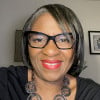Where in the world did we buy books in the 60s?
Where in the world did we buy books in the 60s?
I'm writing an article on MLK with a reference to a photo book I have of "Pacem in Terris," Pope John XXIII's , influential "Peace on Earth" encyclical when I wanted to be specific about where I bought it. I can't IMAGINE, other than a college book store, where I would have bought a book in Milwaukee in the 60s! We lived on the southside. Did "Schusters" and "Boston Store" Department store have books? I really, really can't remember.Goodwill maybe?.....................................................................................
I hadn't realized that Goodwill had been around for so long, but when I went to comment on your answer, apparently there WERE around a lot longer than in the 60s. I don't remember going to Goodwill, but I remember buying this book new.
Goodwill had lots of old books, the corner drug store...they carried an assortment of items for everyday needs. The local library, they sold some once in a while.
I bought books at Burroughs. That store was in Cleveland, Ohio.
In the 60s and 70s I got books at B. Dalton Booksellers and Waldenbooks. Oh... and weekly trips to the library, of course!
I remember the trips to the library. Ah, B. Dalton and Waldenbooks! That's right. But I just looked it up and B. Dalton's was established in 1966 and that once beautiful book I got was from 1964. It must have been Waldens. Thanks KEPitz1005.
There were many thriving independent bookstores before the chains like Crown came in to undercut them in price. B. Dalton was also around then. Here in Los Angeles, my faves were Dutton's Books in the SF Valley and Pickwick Booksellers on Hollywood Blvd. I could find or order ANYTHING!
Sweet, and a little sad like "You've Got Mail" huh? We're in the LA area now, but for the life of me, I can't remember where I went in Milwaukee. It might have been Waldens at the Mall or maybe Gimbel's Department store. Thanks so much

- tsmogposted 12 years ago
0
This is an interesting question. I think for me the 60's were 1st grade through 9th grade arriving with '69. With that in mind I did read a lot then, however the source were really only three - 1) School Library, 2) Public Library (Book Mobile included), and 3) the Churches I attended '67 - '70 had libraries too. Those were not just on religion in the children / teen section, yet history and fiction too.
I the '70's as I hit the late teens and twenties I was a member of several book clubs then for mail order. The monthly catalog or quarterly catalog were really pretty extensive with pages into 40 or more. Next, for purchasing a book it was a magazine of interest such as for me was the high performance automotive industry. So, magazines were the source for the late breaking high tech this is how to create horsepower or design / alter a suspension system and etc.
Next, was the 5¢ & 10¢ Store or the F.W. Woolworth store. We would make a bi-weekly trip to the mall in the neighboring city on a Saturday and there a B. Dalton's Book Store was at the main entrance. Now long gone sold to Barnes & Noble and not sure if the name has been retired or not. A Walden Book Store was at the malls closer to San Diego or there was a large store outlet downtown.
Finally, the local community college offered a plethora of books plus microfiche for research too with scholastic publications, newspaper, and periodical prints if on file. Consider about then a computer was in the phase of what the Eniac, I don't know, but they were not common then even in a high school or community college.
Long treatise of how or how much was available to the common folk then. Those in the cities had greater access to book stores. Those near a College or University campus had even greater access to the ability or capacity to buy a book if not by mail order of some type by a catalog.
I hope this helps.I think this would make a GREAT hub. Of course, the "how to" aspect would be difficult but I can imagine the pictures, etc. Maybe, "Before Barnes and Noble..." "What You Don't Know About the 70s: Books" I'm not good at titles for hubpages viewing.
Before the coming of the World Wide Web and Amazon, Alibris, Abebooks, etc., and before the coming of book store chains like Barnes & Noble, Border Books, Walden Books, etc., there were a lot more new and used book stores than now in the cities and towns of America. One of the several used book stores in Milwaukee from I think the 60s until fairly recently was Renaissance Books. It was huge -- three stories high. They opened a branch at the airport in the 80s. Locally owned book stores, like all locally owned stores, come and go as owners move, retire, die, etc. Internet competition forced many booksellers out of business. Perhaps sometime in the 60s you stopped at a local Catholic store in Milwaukee selling books and sacramentals. They and general Christian bookstores and even more general spirituality book stores used to be fairly common.
omGOODNESS! Renaissance Books.YES! I remember. Exactly -smelled musty, right? And you got it right about the Catholic bookstores. I grew up on Irving and Farewell, moved to Greendale in HS, married a guy from Cudahy, lived in flat Bayview
I wouldn't know either Billie but my assumption is that libraries were frequented more. We didn't buy as many books as we borrowed. I also think that book stores were the way to go, at least in the 80s and 90s. Unfortunately, they have been replaced with coffee shops - instead of taking in knowledge, we take in caffeine, looking at our devices instead of each other (she says as she sits by the window inside the Caribou coffee shop with her Kindle Fire, sipping her decaf). :-)
Related Discussions
- 19
What books did you read as a child between the ages of ten and fifteen?
by Jim Higgins 13 years ago
What books did you read as a child between the ages of ten and fifteen?I know there are probably a few Hubbers who were born before 1950, and was wondering what books they read as kids. I'm thinking about a Hub along these lines highlighting some I read and still remember names and titles, even...
- 13
What is the best second hand shop or thrift store in your area?
by Christin Sander 10 years ago
What is the best second hand shop or thrift store in your area?I live in Illinois. I know a lot of attention is given to Goodwill and Salvation Army stores and I'm happy to support them, but they have really gotten more expensive. There are a couple of "mom and pop" thrift stores...
- 34
How many of my fellow hubbers shop at Goodwill?
by Brian 14 years ago
My message isn't really about saving money or stretching the dollar, it's about being a bargain hunter. I enjoy finding good deals on clothing and other items for a couple bucks. It's like going treasure hunting, and I'm usually more happy when I find something cool at goodwill or the Salvation...
- 27
The first book that changed my life, by Vidya D Sagar
by Chitrangada Sharan 3 years ago
Please take some time to read this beautiful response to the word prompt ‘First’, by Vidya D Sagar.https://hubpages.com/literature/The-Fir … pt-Week-53
- 17
Should libraries determine whether the book "Shades of Grey" will or will not be
by Howard S. 13 years ago
Should libraries determine whether the book "Shades of Grey" will or will not be on their shelves?It has been reported that some libraries are removing "Shades of Grey" from their shelves. Is it appropriate for libraries to determine whether a given book will or will not be...
- 133
What book are you reading right now?
by FatFreddysCat 7 years ago
I've seen a few forum threads/questions about reading lately - asking what types of books you like to read, or how many you've read in the past year, etc....but none have simply asked: what book are you reading right now? So c'mon, bookworms, tell us what you got. I'll start:Currently: A...














